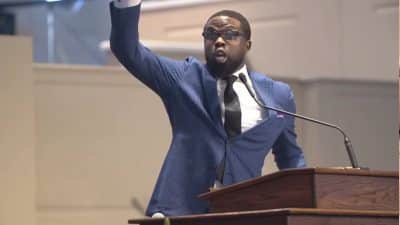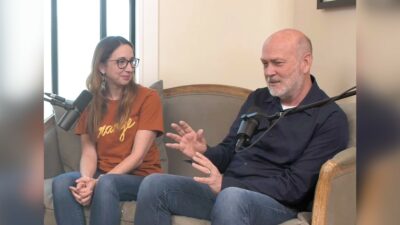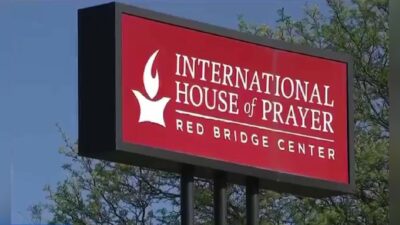Do all the professors at the Moody Bible Institute (MBI) affirm biblical inerrancy?
This question has been hotly debated ever since I reported in January that one of several allegations against the previous administration was that it allowed professors who deny inerrancy to teach at the institute. Less than a week after that post, three of MBI’s top officers stepped down, though MBI leadership offered no specific reasons for the change other than the board decided it was “time for a new season of leadership.”
At the time, Moody VP and Dean of Distance Learning Bryan O’Neal told WORLD Magazine, “All of our faculty affirm inerrancy annually when they sign their annual contract. It’s explicit. … There is no drift.” Similarly, MBI said in a statement, “The Board, faculty, and leadership annually and without reservation agree to (MBI’s doctrinal statement) which is a condition of employment.”
However, Moody’s doctrinal statement on inerrancy was written about 90 years ago – at a time when no one could have predicted how postmodernism would change the plain meaning of words, and the concept of truth itself. At that time, no one foresaw that some evangelical scholars, like Robert Gundry for example, would claim to be inerrantists, yet hold that the magi never visited Jesus, and that the gospel writer had simply “embroidered” the text.
[pullquote]”In today’s postmodern environment, it is entirely possible for someone to sign a statement claiming that the Bible ‘is free from error’ and yet simultaneously admit to what many would consider errors.”[/pullquote]In today’s postmodern environment, it is entirely possible for someone to sign a statement claiming that the Bible “is free from error” and yet simultaneously admit to what many would consider errors. So, the question facing the Moody Bible Institute (and many other Christian institutions like it) is not whether all its professors have signed a doctrinal statement on inerrancy, but what do they mean when they sign that statement?Your tax-deductible gift helps our journalists report the truth and hold Christian leaders and organizations accountable. Give a gift of $30 or more to The Roys Report this month, and you will receive a copy of “Hurt and Healed by the Church” by Ryan George. To donate, click here.
In late January, I reported that some professors at Moody deny what’s known as a correspondence view of truth. According to leading apologist Dr. John Warwick Montgomery, correspondence “simply means that what one says fits the reality of the world” (i.e. that truth corresponds to reality). So, if the Bible describes a historical event or detail, those who adhere to correspondence believe these events and details are real and actually happened. Those who don’t adhere to a correspondence view leave open the possibility that these things may not be real.
The news that some MBI professors deny correspondence view created controversy among the institute’s alumni and supporters, and in late February, the trustee board clarified the institute’s definition of inerrancy and seemingly affirmed the necessity of adhering to a correspondence view. However, professors at Moody have pushed back, and questions remain about which views of truth and inerrancy are permitted at the institute, and which views are not.
MBI Professors Reject “Correspondence View of Truth” & Chicago Statement
Issues of inerrancy at Moody first came to light in December when a theology professor, who’s since been dismissed, sent a 65-page document to Trustee Emeritus Paul Johnson at Johnson’s request. In the document, which was later distributed to all the trustees, former Theology Professor Richard Weber alleged that two members of the Moody Bible/Theology Division “professed a postmodern view of truth that would require a re-defining of the doctrine of inerrancy contrary to the conservative evangelical definition expressed in the Chicago Statement on Biblical Inerrancy.”
The Chicago Statement on Biblical Inerrancy is a consensus document created in 1978 to defend biblical inerrancy against what many perceived to be a liberal trend within evangelicalism. It was crafted by several leading evangelicals, including J.I. Packer, R.C. Sproul, and Norman Geisler – and signed by nearly 300 noted evangelical scholars.
The Chicago Statement assumes a correspondence view of truth, stating, “Scripture is without error or fault in all its teaching, no less in what it states about God’s acts in creation, about the events of world history, and about its own literary origins under God, than in its witness to God’s saving grace in individual lives.”
Weber said that when he was interviewed for his position at Moody 15 years ago, he was told that MBI holds to the Chicago Statement. However, at a Bible/Theology Division meeting on January 18, 2017, Weber said he was surprised to hear two colleagues state that they reject the Chicago Statement’s definition of inerrancy. They further said that they do not hold to a “correspondence view of truth.”
[pullquote]”Weber said he was surprised to hear two colleagues state that they reject the Chicago Statement’s definition of inerrancy. They further said that they do not hold to a ‘correspondence view of truth.'”[/pullquote]The professors did not specify how their rejection of correspondence impacts their interpretation of Scripture. However, some who deny correspondence hold that something can be true even if it didn’t happen, but merely served a function within a specific parable or legend.For example, Gundry argued that the gospel writer Matthew employed a Jewish literary genre called midrash when he said that magi came to visit Jesus. This genre allowed Matthew to add a non-historical element – supposedly the magi – into his narrative to make a point – allegedly highlighting the mission of Jesus to the gentiles. To Gundry, whether the magi actually visited Jesus is immaterial.
This kind of reasoning has become quite popular in evangelicalism in the past few decades and is evident in a 2013 book by Zondervan called Five Views on Biblical Inerrancy. According to Weber, “Three of the viewpoints in that book actually deny inerrancy of Scripture. Peter Enns, says there was no wall around the city of Jericho, but he doesn’t consider that to be an error because he’s redefined what error means to fit his definition. It’s a whole postmodern game. It depends on what the definition of the word ‘is’ is.”
When pressed at the meeting, both of the professors who denied correspondence reportedly said they affirm inerrancy and see no conflict between signing Moody’s doctrinal statement and simultaneously rejecting a correspondence view of truth and the Chicago Statement. I emailed both professors, asking for clarification on their views, but only one responded. He wrote that his view on inerrancy is identical to the one espoused by author and theologian Kevin Vanhoozer in the Five Views on Biblical Inerrancy published by Zondervan.
I talked with Vanhoozer, the well-respected research professor of systematic theology at Trinity Evangelical Divinity School whose view the professor likened to his own. However, the view Vanhoozer expressed seemed quite different from the professor’s. Not only does Vanhoozer affirm the Chicago Statement, but he also affirms a correspondence theory of truth.
“I affirm correspondence as an intuition into the nature of truth,” Vanhoozer said. “How can I be a Christian and say, ‘He is risen!” if he has not risen? . . . I believe that sentence, ‘He is risen!’ corresponds to a historical state of affairs.”
However, Vanhoozer said he rejects an extreme or “wooden” correspondence view that holds that “every word links up to some object in the world.” He said this view fails to take into account different kinds of literature in Scripture like poetry and parables. “Think of the Song of Songs,” he said. “If you don’t pay attention to the metaphor, the simile, all the comparisons, the flowery language, the artist’s rendering of the beloved – when everything is interpreted literally, it’s pretty frightening.”
Yet Vanhoozer said the Chicago Statement accounts for different kinds of literature and is nuanced, so he is able to affirm it.
MBI Adopts Chicago Statement After First Failing to Clarify Definition of Inerrancy
Weber reported that during the meeting last January, he tried in vain to get clarity on Moody’s definition of inerrancy from two MBI deans. One responded, “The Chicago Statement is one definition of inerrancy, but it’s not the definition.” The other reportedly replied that the definition of inerrancy was beyond his purview and that it was up to the trustees and the president to clarify. However, when Weber urged him to take the matter to the trustees, he refused.
Several days after that meeting, Weber sent a three-page letter through the ombudsman at Moody to former President Paul Nyquist, explaining the controversy over inerrancy and asking for clarification concerning the MBI doctrinal statement. Nyquist responded with three sentences, which seemingly distanced the institute’s definition of inerrancy from the Chicago Statement.
“We require faculty to affirm our doctrinal statement,” Nyquist wrote. “The Chicago statement, written decades later, is not identical to our doctrinal statement. If a person affirms our doctrinal statement they are able to teach at Moody.”
About a month after I reported these events in a blog post, the MBI Board of Trustees adopted the Short Statement of the Chicago Statement on Biblical Inerrancy, as well as its Articles of Affirmation and Denial. It also stated that all faculty would be required to sign an affirmation of the Chicago Statement as a condition of continued employment.
But that did not settle the issue.
Professors Protest: Will Sign the Chicago Statement but it “Means Nothing to Me”
Several weeks after the board adopted the Chicago Statement, some professors, who had been part of an ad-hoc committee on inerrancy, voiced their opposition in documents that were sent by the associate provost’s office to the entire faculty. The professors expressed concern that the board’s new requirement would confirm allegations that some faculty do not affirm biblical inerrancy. As Bible/Theology Division Chairman Steven Sanchez wrote, “If (trustees) make us sign (the Chicago Statement), we are concerned that it will communicate to the faculty and the public that you believe there is a problem.”
Similarly, Theology Professor Michael McDuffee wrote that the trustees listened to allegations of theological drift brought by “certain faculty members – number unknown.” Instead, McDuffee said the board should have listened to the faculty inerrancy committee, which concluded that all members of the Bible/Theology Division sufficiently affirm inerrancy.
“(MBI trustees) have treated us as if we are at risk at picking up specious positions on inerrancy,” McDuffee wrote, “requiring an anonymous type internal affairs squad to keep a watchful eye on us, so that with an early enough warning they can reel us in and keep us from theological drift away from orthodoxy.” Though McDuffee said he subscribes to the summary statement and 19 articles of the Chicago Statement, he added, “The CSBI (Chicago Statement on Biblical Inerrancy) means nothing to me. I will sign it, and each time I do my signature will remind me of the wrong done and reopen the wound it inflicted.”
Though McDuffee admitted that two of his colleagues deny a “philosophical” correspondence view of truth, he argued that these colleagues still qualify as inerrantists because they embrace a “common usage” of correspondence. Explaining further, he said the professors affirm a “pre-theoretical claim about language and ‘correspondence,’ about truth and its relationship to reality by the commonplace and everyday meaning of these words without affirming a correspondence theory of truth.”
[pullquote]”(Rejecting a correspondence view) doesn’t sound like heresy yet, but that’s exactly the kind of thing that opens the door to heresy. . .”[/pullquote]However, I asked Montgomery his opinion about McDuffee’s argument and he challenged the notion that one could have a valid “pre-theoretical intuition” about correspondence without also affirming a philosophical correspondence theory. “If it’s a sound intuition, then it can be expressed in propositional form. And the minute that you do this, you’re expressing a correspondence theory.”He added, “The only people who are bothered by correspondence theory are either philosophical existentialists or they are liberal theologians, or both. . . . (Rejecting a correspondence view) doesn’t sound like heresy yet, but that’s exactly the kind of thing that opens the door to heresy because once you have said that you deny the correspondence theory of truth, how under the sun can you claim that the Bible is objectively true, to say nothing of its being inerrant?”
McDuffee and other members of the inerrancy committee also argued that a correspondence view is not required to sign the Chicago Statement, essentially rendering the board’s decision to adopt the statement ineffectual. They also indicated that their two colleagues who deny correspondence view had now decided that they could sign the Chicago Statement.
McDuffee based his assertion that correspondence view is not required on the fact that the Chicago Statement “does not include any mention of a correspondence view of truth.” In addition, he noted that commentaries written by some of the creators of the Chicago Statement, asserting that correspondence view is required, were written years after the statement was initially signed. Therefore, the opinion expressed in the commentaries may not represent the consensus view.
However, one of the original signers of the Chicago Statement, former Moody Professor of Bible and Theology William Luck, said he knew more than 100 of the signers personally and believes every one of them would have affirmed a correspondence view. “(I)t should be assumed that the signers do concur unless they state otherwise, since the same people produced the (Chicago Statement) that produced the commentaries,” he said.
Montgomery, who also was an original signer of the Chicago Statement, agreed with Luck’s assessment and said the argument that the Chicago Statement doesn’t necessarily affirm correspondence view because it isn’t explicitly mentioned is “nonsense.”
“Let’s say we have a doctrinal statement that talks about the Father, Son, and the Holy Spirit, but doesn’t use the word ‘Trinity.’ Does that mean that the people who signed that hypothetical statement were not saying anything about the Trinity? Of course they were because everything that’s said about Father, Son, and Holy Spirit requires exactly the same picture of God.”
Where Does Moody Go From Here?
No doubt Moody is facing an unprecedented crisis that threatens its very identity as a conservative evangelical Bible school. President Nyquist’s administration opened the door to postmodern understandings of truth and inerrancy. And now, even after adopting the Chicago Statement, the trustees are having trouble closing that door.
In addition, enrollment is down sharply, which has prompted the school to close its Spokane campus and lay off about a third of its faculty. Sadly, some of the faculty who have been cut, like Weber, were some of the staunchest defenders of inerrancy. One of the two professors who deny correspondence view remain at the institute, as well as all of the members of the inerrancy committee, which concluded that correspondence view is not required.
In some ways, Moody’s situation is not all that different from the situation The Southern Baptist Theological Seminary faced nearly 25 years ago. The school at that time was engaged in a tug-of-war between progressives, moderates, and conservatives. However, when the trustees hired Al Mohler to serve as president, the school charted a decidedly conservative course.
Mohler was unwavering. “The task for Southern Seminary in the years ahead,” he said in his convocation speech, “is to stand on the faith . . . without compromise.”
One of Mohler’s first initiatives was to adopt the Chicago Statement as the official definition of biblical inerrancy. Initially, tensions mounted, faculty with different doctrinal commitments left, and enrollment dropped. But in time, Southern began to flourish. Enrollment in its undergraduate and graduate schools went from 3,500 in 2003 to a record enrollment of more than 5,000 in 2015.
Moody is not Southern Seminary, but clearly it needs a new president cut from the same cloth as Al Mohler. As Dr. Norman Geisler, one of the crafters of the Chicago Statement, commented, “(T)here’s no heresy-proof statement that you can’t wiggle out of it and define it another way.” That’s why Moody needs a leader who’s determined to uphold a strong standard of inerrancy regardless of the pushback he’s sure to encounter.
What it doesn’t need is to embrace new, postmodern understandings of truth and inerrancy. As founder D.L. Moody famously said, “The Word of God is just as true today as it ever was. We want no new paths. The way our fathers took is the best way.” I am sincerely hoping and praying that the school finds that well-trod path in the months and years to come.
This article first appeared in The Global Journal of Classical Theology.




















One Response
No matter what doctrinal statement an organization has, someone who wants to get or keep his job is likely to play mental tricks or define words so that he can bring himself to sign it. I think it is better to interview a person and ask him what HIS beliefs are on a subject; read his own self-generated doctrinal statement.
BTW, I being a Bible-believing Christian who holds the fundamentals of the faith, have found that I cannot sign long-winded doctrinal statements without finding something here or there that I disagree with. When I got my position teaching at MBI, I found a short statement that I had no trouble signing, though now as I look at that old statement, I realize that it is defective on the Trinity — so they recently fixed it. There is one God & 3 persons. God is not one person but one being who has 3 egos. As much as we need doctrinal statements, it is really hard to write a long one without making errors.
A good church doctrinal statement should have in it things that all Christians must believe, if we are to consider them Christians. And all voting members must understand it and sign it. But it should not be written so as to exclude real Christians who disagree with us on non-essential issues, such as the timing of the Rapture relative to other eschatological events.
A Bible College may wish to restrict its faculty to some particular eschatology, however. How may points of the TULIP will you insist on for faculty? I would insist on total depravity and perseverance of the saints (2 Point Calvinism), but allow disagreement on the other 3.
I anticipate that it will become impossible to maintain Regional Accreditation and hold to a strong doctrinal position in some areas, like women’s role and sodomy. I think we should be ready to go back to the old 3 year unaccredited Bible Institute format, with our own accrediting body which will not be deemed accreditation by the world. Am I correct that there no longer is a Bible College accrediting association? Hasn’t the American Association of Bible Colleges morphed away from the old paradigm with its name change?